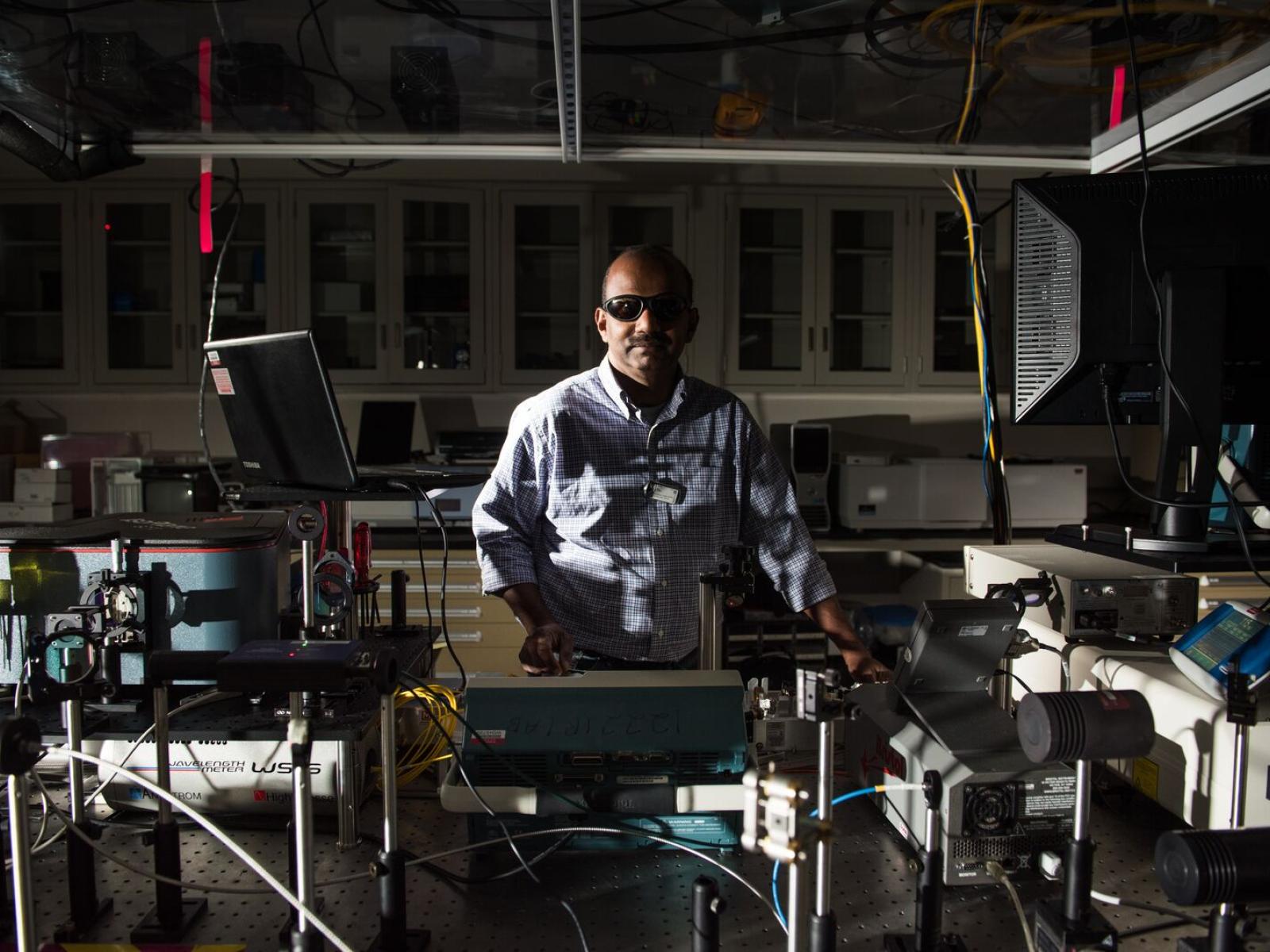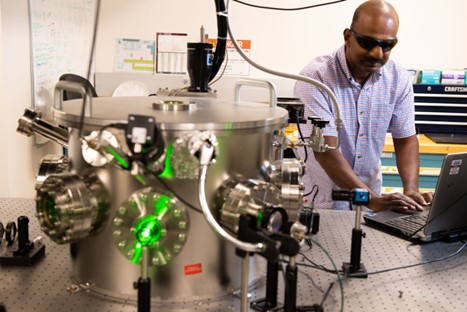Sivanandan Harilal Chosen as a 2024 SPIE Fellow
Recognized for his scientific and technical achievements

Researcher Sivanandan (Hari) Harilal uses lasers for remote Isotope sensing in support of treaty-verification and nonproliferation.
(Photo by Andrea Starr | Pacific Northwest National Laboratory)
Chief Scientist and Physicist Sivanandan Harilal from Pacific Northwest National Laboratory (PNNL) was selected as one of only 47 international Society of Photographic Instrumentation Engineers (SPIE) Fellows identified for 2024.

Fellows are honored for their technical achievement and for their service to the general optics community and to SPIE. Harilal has been selected as a SPIE Fellow for his achievements in plasma spectroscopy and applications in extreme ultraviolet lithography and nuclear nonproliferation.
SPIE is an international society for optics and photonics that brings engineers, scientists, students, and business professionals together to advance light-based science and technology. Established in 1955, SPIE sought to support and advance the international optics and photonics community. Members are chosen by a committee based on their significant scientific and technical contributions in the multidisciplinary fields of optics, photonics, and imaging. The society began with only 100 members, increasing to 1,000 members within its first 5 years. Today, SPIE has more than 24,000 members.
Background

Having been a SPIE member for more than 10 years, Harilal’s research expertise lies in laser–plasma interaction, plasma–material interaction, plasma diagnostics, plasma chemistry, plasma and fireball spectroscopy, plasma sources for lithography and microscopy, and materials under extreme environments.
“At PNNL, I’m basically looking at laser–plasma applications in the field of nuclear nonproliferation particularly focusing on isotopic detection of nuclear-related materials,” Harilal said. “Currently, I’m working mainly using lasers and plasmas for detecting isotopes from a standoff distance.”
Harilal was acknowledged as a new Fellow during the 2024 SPIE Conference on High Power Laser Ablation (Santa Fe, NM) held earlier this year.
Published: August 14, 2024